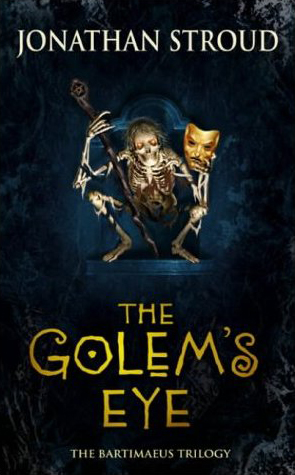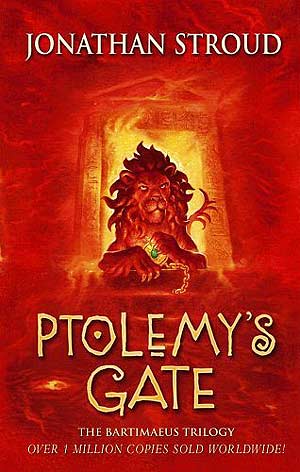"I learned one valuable lesson that day, which is that if you seek popularity, there is no surer way of achieving it than raiding a syndicate of tax collectors."Tiro, secretary of Marcus Tullius Cicero
and narrator of Robert Harris' Imperium (2006)
I LOL'ed at this.
Politics is boring - and the entirety of my understanding and knowledge on the subject can be summarised in two simple lines;
- 'Poly' means 'many'.
- 'Ticks' means 'parasitic, blood-sucking arthropods'.
Malaysian politics means slightly more to me than that. Only slightly.
If I have to comment on it from a dispassionate foreigner's point of view, I would call it a regular source of entertainment - a case in point being the hilarious MP (whose name I don't know and don't care) who opined that bloggers should be registered. For a short stint, I noticed that many bloggers ranted and raged from their own personal soapboxes, putting down that said MP and calling him lots of (funny) ugly names. I simply couldn't decide which was more absurd; the MP or the bloggers for being outraged at him. The idea was clearly neither feasible nor enforceable. I suspect that many of the protesters have an over-glorified and hyper-romantic image of bloggers as "guardians of free speech" - or some shit like that.
But even if I am to comment on it from the point of view of a Malaysian citizen (of which I am guilty of, unfortunately), I cannot truthfully say I felt angry at all about that MP's idea. No, the emotion most native to me when it comes to our politicians' many antics is embarrassment. Every time I hear a politician say something incredibly stupid (like the citation of playing gasing and making teh tarik in space as 'scientific experiments which will produce important data for our country's research efforts' by that other MP whose name I-don't-know-and-don't-care as well), I could feel my blood receding from my face in absolute horror. C'mon, what wouldhawt Ukrainian babes foreigners think of us? I mean, if our leaders, the ones we chose to represent us, are that dumb...
In short, some of our politicians make me feel like I'm a father of a whole troop of fat, spoilt, mustached kids that runs around the shopping mall screaming like retards and pinching women's buttocks.
Everyone who knows me would know that I'll be migrating to New Zealand as soon as I'm able - so I can sit and laugh at our MP's with the rest of the world instead of feeling ashamed on their behalf.
But my greatest motivation to get out is because I'll never be truly Malaysian. Don't get me wrong - I like the country just fine (spiffing eats, huzzah!). It's just that, well - to put it as bluntly as I can - I don't want to be explaining to my kid next time why Mohd. Entah bin Siapa from their class manages to get a medical scholarship to UK even though he has only half the amount of 1A's my kid scored in the SPM. And do note that I'm bashing no one's race or god here; it's just that Malaysia isn't some place that respects my ancestry and choice of faith as much as it respects certain others.
That's why politics in Malaysia does not interest me - I'm jumping ship eventually anyway. I just can't be bothered to wait for the country to grow up.
Fictional politics on the other hand...
If I have to comment on it from a dispassionate foreigner's point of view, I would call it a regular source of entertainment - a case in point being the hilarious MP (whose name I don't know and don't care) who opined that bloggers should be registered. For a short stint, I noticed that many bloggers ranted and raged from their own personal soapboxes, putting down that said MP and calling him lots of (funny) ugly names. I simply couldn't decide which was more absurd; the MP or the bloggers for being outraged at him. The idea was clearly neither feasible nor enforceable. I suspect that many of the protesters have an over-glorified and hyper-romantic image of bloggers as "guardians of free speech" - or some shit like that.
But even if I am to comment on it from the point of view of a Malaysian citizen (of which I am guilty of, unfortunately), I cannot truthfully say I felt angry at all about that MP's idea. No, the emotion most native to me when it comes to our politicians' many antics is embarrassment. Every time I hear a politician say something incredibly stupid (like the citation of playing gasing and making teh tarik in space as 'scientific experiments which will produce important data for our country's research efforts' by that other MP whose name I-don't-know-and-don't-care as well), I could feel my blood receding from my face in absolute horror. C'mon, what would
In short, some of our politicians make me feel like I'm a father of a whole troop of fat, spoilt, mustached kids that runs around the shopping mall screaming like retards and pinching women's buttocks.
Everyone who knows me would know that I'll be migrating to New Zealand as soon as I'm able - so I can sit and laugh at our MP's with the rest of the world instead of feeling ashamed on their behalf.
But my greatest motivation to get out is because I'll never be truly Malaysian. Don't get me wrong - I like the country just fine (spiffing eats, huzzah!). It's just that, well - to put it as bluntly as I can - I don't want to be explaining to my kid next time why Mohd. Entah bin Siapa from their class manages to get a medical scholarship to UK even though he has only half the amount of 1A's my kid scored in the SPM. And do note that I'm bashing no one's race or god here; it's just that Malaysia isn't some place that respects my ancestry and choice of faith as much as it respects certain others.
That's why politics in Malaysia does not interest me - I'm jumping ship eventually anyway. I just can't be bothered to wait for the country to grow up.
Fictional politics on the other hand...
Imperium
by Robert Harris
by Robert Harris
First off, here's the blurb on the back cover;
Ancient Rome - 'a city of glory built on a river of filth' - teems with ambitious and ruthless men. None is more brilliant than Marcus Cicero. A rising lawyer, backed by a shrewd wife, he decides to gamble everything on one of the most dramatic courtroom battles of all time. Win it, and he could win control of Rome itself. Lose it, and he is finished forever
This is semi-fictional biography of Marcus Tullius Cicero, a famed Roman statesman, lawyer, political theorist and philosopher, who was widely considered as one of Rome's greatest orators and prose stylists - written from the point of view of his secretary/scribe/slave, Tiro1.
Simply put, this is a story of how an 'outsider2' of the senate, though not being even wealthy enough initially to qualify for a seat, managed to technically "talk his way" to becoming the most powerful man in ancient Rome. If you like stories of smaller, weaker men outwitting richer, and more powerful folks - if you enjoy tales of smart protagonists thinking their way out of impossibly difficult situations - Imperium is definitely the book for you.
In reference to this blog post's title; In Toga Candida - the Latin phrase can be literally translated as "In White Gown" which is the proper garb for a senatorial candidate. In fact, the English word 'candidate' was derived from this practice. When historians refers to In Toga Candida, they are talking about one of the most famous speeches in history, delivered by Cicero (in real life) in the senate, indirectly winning him the Consulship of Rome. Are you getting what I'm saying? Cicero became Rome's head honcho by giving a speech!
We, on the other hand, consider ourselves lucky if our MP's don't say something that make us Malaysians sound like a bunch of backwater island yahoos.
In Imperium, you'll be given a glimpse of the circumstances, intrigue, and plotting that made the In Toga Candida speech so powerful. Aren't you the least bit curious of what he said?
Anyway, in further support of this excellent work of literature, I must tell you that I am someone who habitually avoids reading any novel based on a true story (I gave up on John Grisham's The Innocent Man at page 26) - but I made an exception in this case. In fact, I liked Imperium so much that I finished all 500 pages of it in two days.
And if any of you have read Robert Harris' earlier novel, Pompeii, and liked it - you should check Imperium out because it's a heck lot better written than that. Also, to fans of ancient Roman culture and governmental structure; YOU WANT THIS BOOK (you just didn't know it yet... but you do now!)
Simply put, this is a story of how an 'outsider2' of the senate, though not being even wealthy enough initially to qualify for a seat, managed to technically "talk his way" to becoming the most powerful man in ancient Rome. If you like stories of smaller, weaker men outwitting richer, and more powerful folks - if you enjoy tales of smart protagonists thinking their way out of impossibly difficult situations - Imperium is definitely the book for you.
In reference to this blog post's title; In Toga Candida - the Latin phrase can be literally translated as "In White Gown" which is the proper garb for a senatorial candidate. In fact, the English word 'candidate' was derived from this practice. When historians refers to In Toga Candida, they are talking about one of the most famous speeches in history, delivered by Cicero (in real life) in the senate, indirectly winning him the Consulship of Rome. Are you getting what I'm saying? Cicero became Rome's head honcho by giving a speech!
We, on the other hand, consider ourselves lucky if our MP's don't say something that make us Malaysians sound like a bunch of backwater island yahoos.
In Imperium, you'll be given a glimpse of the circumstances, intrigue, and plotting that made the In Toga Candida speech so powerful. Aren't you the least bit curious of what he said?
Anyway, in further support of this excellent work of literature, I must tell you that I am someone who habitually avoids reading any novel based on a true story (I gave up on John Grisham's The Innocent Man at page 26) - but I made an exception in this case. In fact, I liked Imperium so much that I finished all 500 pages of it in two days.
And if any of you have read Robert Harris' earlier novel, Pompeii, and liked it - you should check Imperium out because it's a heck lot better written than that. Also, to fans of ancient Roman culture and governmental structure; YOU WANT THIS BOOK (you just didn't know it yet... but you do now!)
P.S. I know most of my readers don't read - and those that do, don't read stuff like this. But I'm going to keep writing book reviews anyway with vague blog post titles. If nothing else, I can at least make you guys come in, read a bit before finding out that it's 'another book post', curse me, and leave.
P.P.S. In toga candida is officially my favourite meaningless Latin phrase at the moment. I'm going to keep saying it till everyone starts repeating it in their dreams.
P.P.S. In toga candida is officially my favourite meaningless Latin phrase at the moment. I'm going to keep saying it till everyone starts repeating it in their dreams.
In toga candida, in toga candida, in toga candida,
k0k s3n w4i
1 Tiro, also a real person (Wiki him if you like), is credited with the invention of the shorthand system of Tironian notes and author of a REAL biography of Cicero (which is now lost in antiquity). Apparently, he invented the ampersand as well. The ampersand is this symbol; (&), which we still use today, even on our computer keyboards.
2 A man who is not part of the aristocracy and has no ancestor in the senate before.



















































